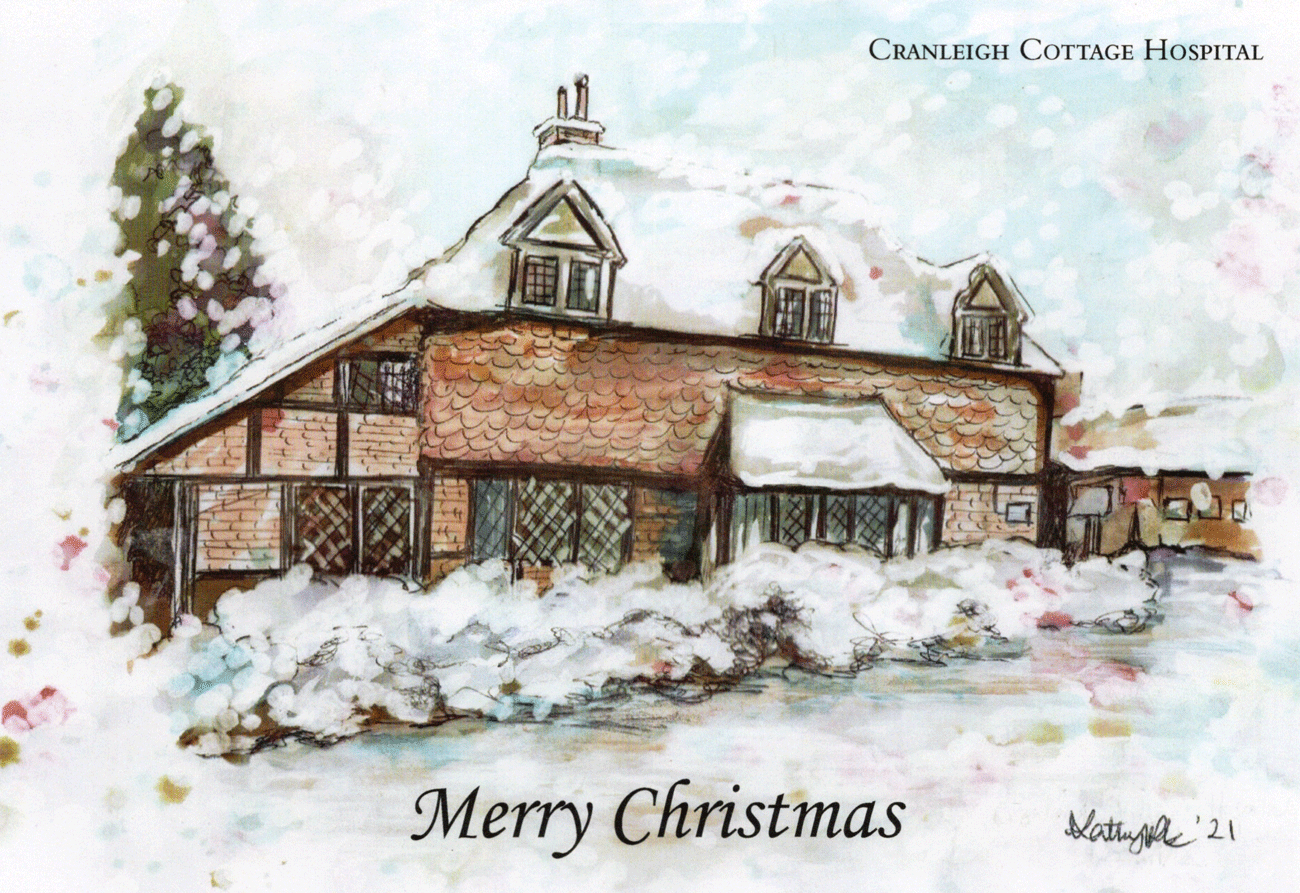
by Trevor Dale
The Heritage Fund has agreed a grant of almost £60,000, made possible by National Lottery players, to develop the case for a conservation grant for Cranleigh Village Hospital old cottage. For the time being we have adopted the less cumbersome working title ‘Napper Cottage’ in honour of Albert Napper, the local doctor who started the Cottage Hospital movement right here, in Cranleigh. This was free at the point of care for those who truly could not afford to pay.
Cranleigh Heritage Trust CIO must seek additional funds from grants and welcomes donations to help with conservation of this medieval heritage cottage steeped in local and latterly, healthcare history. This can be done easily via the button on our web page www.cranleighheritagetrust.org.uk or visit our stall in the monthly artisan markets in Stocklund Square on the first Saturday of every month.
We must keep stressing that this is an entirely separate project from the current working day hospital, which raises funds via the League of Friends to buy equipment and provide clinical spaces, and the inactive Cranleigh Village Health Trust which had planned to bring hospital care beds back to the community, without success.
Much of our future business plan relies on renting the rooms for a modest fee for health and wellbeing services as well as for meetings such as hobby groups.
Health and wellbeing in this case refers to social prescribing also sometimes known as community referral. It is a means of enabling health professionals to refer people to a range of local, non-clinical services. The referrals generally, but not exclusively, come from professionals working in primary care settings, for example, GPs or practice nurses.
But does it work? And how does it fit in with wider health and care policy?
Recognising that people’s health and wellbeing are determined mostly by a range of social, economic and environmental factors, social prescribing seeks to address people’s needs in a holistic way. It also aims to support individuals to take greater control of their own health.
Schemes delivering social prescribing can involve a range of activities that are typically provided by voluntary and community sector organisations. Examples include social drop-ins with support, help to find suitable volunteering, arts activities, group learning, gardening, befriending, cookery, healthy eating advice and a range of sports activities. It can also involve very practical help with problems such as money and rent.
Social prescribing is designed to support people with a wide range of social, emotional or practical needs, and many schemes are focused on improving mental health and physical wellbeing. Those who could benefit from social prescribing schemes include people with mild or long-term mental health problems, people with complex needs, people who are socially isolated and those with multiple long-term conditions who frequently attend either primary or secondary health care.
There are different models of social prescribing being employed across England. Most involve a link worker (other terms such as community connector, navigator and health adviser are also used) who work with people to access local sources of support. One example is the Bromley-by-Bow Centre a community and primary care hub in east London with a long history of social prescribing and other community-focused work. Staff work with people, often over several sessions, to help them get involved with local services ranging from swimming lessons to financial advice services.
Social prescribing can be understood as one of a family of approaches, sometimes called community-centred approaches, which aims to mobilise the power of communities to generate good health.
YOUR SUPPORT FOR THE PROJECT
There are many opportunities for enthusiastic volunteers to join the project. This promises to be a rewarding challenge for those with an interest in history and heritage, or in helping people. Please contact us by phone, letter or email. 01483 272987;
If you are a charity, business or therapist please do contact us to register your interest. We need long-term partners, and the Heritage Fund panel needs us to show them how we are engaging with our community.
To register an expression of interest in future use of the facilities please write to us with the following information:
1. Brief description of what you offer and the benefits to clients and customers
2. Say if and where you currently offer this service and why people would use the cottage to meet you
3. Brief declaration of support for the project in general
4. Return name and address and any website or social media links.
Thank you so much! Very best wishes for the Festive Season and the New Year, from The Team
Trustees Trevor Dale – Chair; Howard Barratt; Jane Briggs; Chris Bulley; Sue Dale; Nigel West. Advisors Bob Callard – architect; Joanna James – business adviser
Cranleigh Heritage Trust have this Christmas card for sale at £2 each (packs of 5 for £10) raising funds for the project.
Scan the QR code

Visit our website www.cranleighheritagetrust.org.uk
or contact us at Email:











